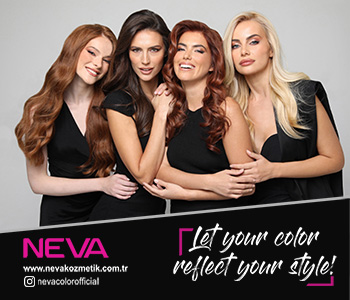Many of us wonder what other people think of us, what impression they make on us, we want to look beautiful, be attractive and make a good impression. When we look at the historical development of beauty, we see that there is a material definition of beauty, and in the field of art, this definition is conveyed through the female body. We can say that in the Renaissance period, the female body, which appeals to the beauty of the woman and presents its beauty to the man, was put in the center. “Women watch their own being watched. This current situation also determines the relationship that the woman establishes with herself,” said, Psychiatrist Merve Yılmaz, an expert at DoktorTakvimi.com. Merve Yılmaz points out that there are great similarities between the emphasis on the beauty and body of women in paintings or architectural works of the Renaissance period and the presentation of women in today’s media. Stating that the change and development of technological conditions, and the historical processes, the male body is now included in this interpretation and emphasis, Psychiatrist Yılmaz underlines that physical beauty is a feature that is taken care of, cared for and strived to have for everyone, perhaps more than in any other historical period.
Being outside the imposition of beauty makes one insecure
With the importance given to beautiful appearance, many people try hard and make an effort to look more beautiful with the desire to be attractive, liked and preferable. The need for aesthetics and beauty expresses one’s desire to enjoy and promote beauty. Stating that following the latest styles, having a certain style, and wearing make-up is a way of expressing one’s aesthetic understanding, Psychiatrist Yılmaz reminds that aesthetic values expressing individual beauty needs are not the same for everyone.
Emphasizing that staying out of the imposition of beauty in accordance with common and accepted norms leaves the person with an insecure and anxious situation, Psychiatrist Yılmaz states that the reasons for insecurity are being excluded from the group, failure, loneliness, being disliked, not preferred, and concerns about self-worth. Psychiatrist Merve Yılmaz points out that as a result of this, negative body perceptions about the person’s body and physical appearance cause social appearance anxiety.
Mass media affect one’s social appearance concerns
One of the experts at DoktorTakvimi.com, Psychiatrist Merve Yılmaz argues that social appearance anxiety does not arise only from the body shape of the individual; she explains that it is a holistic state of anxiety, which includes the anxieties experienced due to reasons such as height, weight, and face shape and negatively affects his daily social activities. Stating that the three main factors affecting one’s social appearance anxiety are peers, parents and mass media, Psychiatrist Merve Yılmaz continues, “Many of us internalize the ideals of physical appearance presented with the influence of these factors and compare their appearance with other individuals. If the person does not have the ideal physical features, negative thoughts about body image are triggered and social appearance anxiety may increase. She asserts that the condition of being successful, beautiful and preferable is to have visual perfection, and accepts the “Beautiful thing is good”. The belief that people with high likeability have personality traits that are always preferred by society can also be misleading.”
Beauty anxiety of those who cannot realize that the filters are not real
In the filters applied to the posts shared on social media, some artificial and technological aesthetic processes such as lip and eye enlargement, nose reduction, skin smoothing, narrowing the cheek area, lighting in the forehead and cheekbone area are seen. Individuals who do not realize that these posts are not completely real can have unrealistic expectations about their own appearance. Emphasizing that these individuals compare themselves with people who receive attention on social media, and as a result, their concerns about their own beauty have increased, Psychiatrist Merve Yılmaz said, “As a result of these thoughts and perceptions, individuals who are not satisfied with their appearance are more and more likely to resort to plastic surgery in order to cope with this situation and increase their quality of life.”






